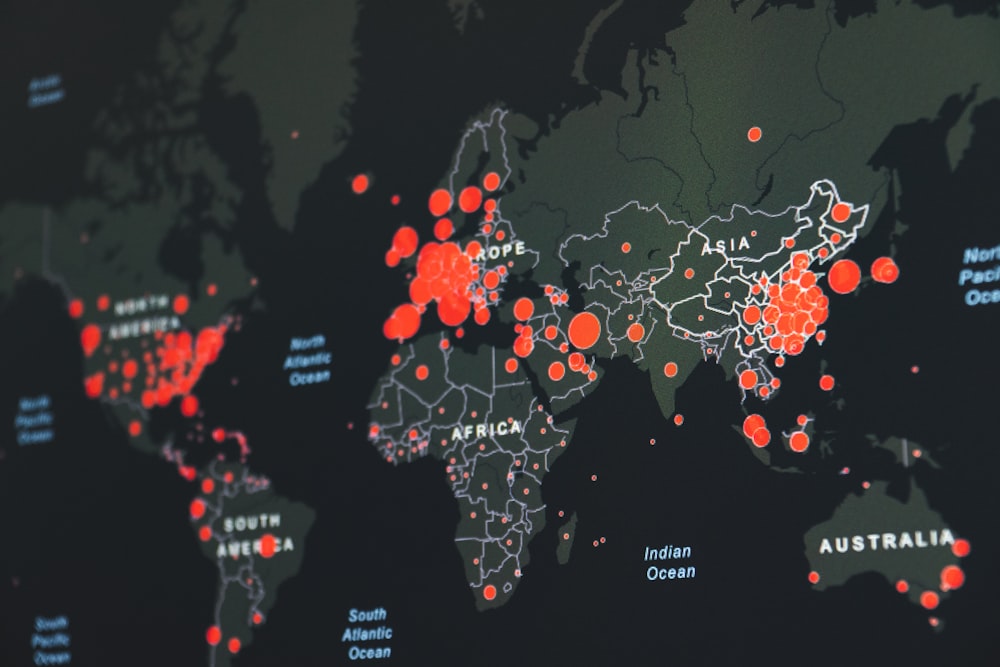COVID-19 continues to cause widespread disruption on a global scale, with Europe now being described as the ‘epicentre’ of the outbreak. Stocks are plummeting around the world, and the Philippines is the first country to close its financial markets due to the Coronavirus.
Initially, the crisis was China-centric, but the country now appears to be in recovery from the crisis . The outlook for China’s economy, however, is thought to be worse than initially forecasted, and will have a knock-on effect for countries with deep economic ties with the giant.
As countries across the world encourage and enforce ‘social-distancing’, the hardest-hit sectors are undoubtedly travel and tourism-related. The hospitality industry is being massively disrupted, with shares in hotel chains plummeting. We explore what this means for the travel and hospitality sectors in Southeast Asia.

Government response
As the world clambers to come to terms with the Coronavirus pandemic, governments are in uncharted territory. Government reaction to the economic slump could determine the survival of many Southeast Asian startups.
Vietnam, although previously praised for reacting quickly to the COVID-19 spread by taking ‘bold measures’, has not escaped an outbreak. COVID-19 has affected the country’s economic outlook and will likely continue to do so. The government is taking steps to quell the virus’ impact, with measures on the way such as the Finance Ministry’s reduction in tax rates and fees, and the Vietnam State Bank’s declaration to decrease interest rates. Despite these measures, Vietnam is anticipating a loss of 0.41% of GDP due to COVID-19.
Singapore has done a stellar job of supporting affected sectors economically. The government website outlines six steps it has taken to financially aid industries such as tourism, food & beverage, aviation, and taxi & private hire. Part of this strategy involves a $4 billion SGD “Stabilisation and Support” package for workers and enterprises. However, projections for the Singapore economy are not much better than Vietnam’s. Maybank forecasts a drop of 0.3% in GDP in 2020.
Business continuity and the future of startups
There are two sides to every coin, and the future for startups is a mixed forecast. Let’s take a look at how some Southeast Asian startups have been dealing with COVID-19 and how it will shape their future.
Remote working is by no means a new concept to Southeast Asia. In fact, remote working has been thriving for some time in the region, with startups especially. Many startups with remote teams were able to adapt swiftly, such as Vietnam-based online education startup CoderSchool. They can perhaps proclaim business as usual, but what about companies whose core dealings happen offline?
Ride-hailing startup Gojek has, even amidst the COVID-19 investor uncertainty, managed to secure $1.3 billion USD in funding, ‘defying tech sector turbulence’. The news comes as a surprise in the economic slump, but CEOs Andre Soelistyo and Kevin Aluwi remain buoyant, claiming that they are “still seeing strong demand among the investment community to partner with us.”
Singapore-based Circles.Life Co-Founder Abhishek Gupta believes that Business Continuity Planning is critical in situations such as this. Running an enterprise in a heavily-regulated industry like telecommunications, forced the company to have such a plan, and this preparation has made Circles.Life resilient amidst the current situation.
Despite the pessimism surrounding COVID-19, some people remain optimistic, predicting that the Coronavirus will be a key driver of innovation in years to come. Just as the SARS epidemic in 2002-2004 spurred the growth of eCommerce giant Alibaba, similar fear surrounding travel and face-to-face contact could, in turn, propel growth in eCommerce once again.
The most badly hit sectors

Travel, tourism, and hospitality are among the worst-hit sectors due to the spread of Coronavirus in Southeast Asia, some describing it as being ‘like a cemetery’. In a global survey, by the Young Presidents Organisation, almost 80% of CEO’s said they were already experiencing a negative impact on travelling for business as there is an attempt to minimise the spread of the virus. With Southeast Asia at present being the most affected
Investment had been adversely affected too, and startups are right to prepare for the worst. Approximately 80% of surveyed CEOs also claimed they are already or are expecting to see a large negative impact on their businesses in the next year.
******
What are the lessons learned from COVID-19? There is indeed pessimism and a lack of confidence around, but -not everything is doom and gloom. Many startups are searching for a new manufacturing base outside of China, and the top four potential locations are Indonesia, Vietnam, Thailand, and Malaysia. Therefore, there is potential for some capital injection in the region in the longer term.
As mentioned before, many see this ‘disaster’ turning into a driving force for innovation. South Korea, for example, has embraced tech to combat the Coronavirus. Could some Southeast Asian startups be a part of the solution to the crisis too? Regardless, for all businesses, it is a time to reflect, and after making sure their employees are safe and well, to adopt strategies that help lessen the negative impact.

Taiwan, a country that is only separated from China by a narrow strait, might interest you as the government did a fantastic job protecting its people. Using big data and tech. This is actually published in JAMA, a leading medical journey: https://jamanetwork.com/journals/jama/fullarticle/2762689